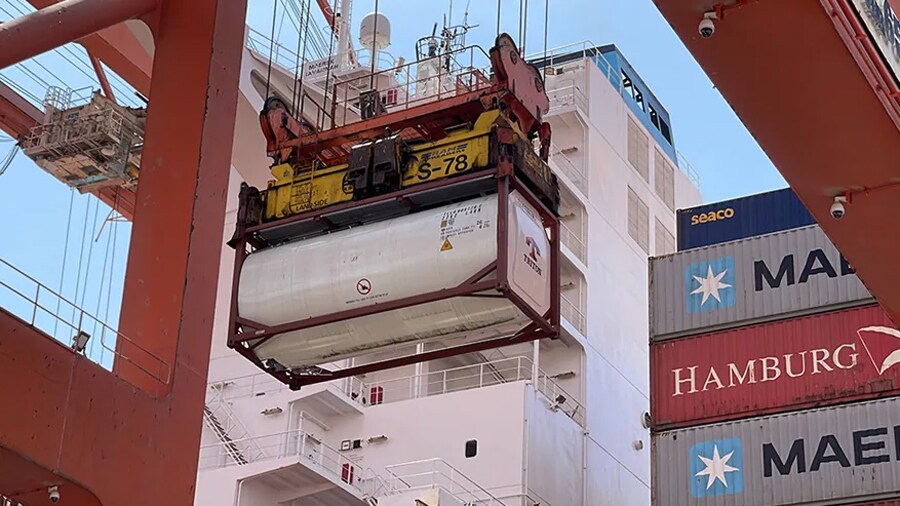
11/04/24
Port of Salalah pilots innovative solution to tackle freshwater scarcity
The Port of Salalah, Oman is piloting an innovative solution to tackle freshwater scarcity together with Maersk. Existing freshwater generator systems aboard cargo ships produce potable water by distilling sea water using waste heat energy harnessed from their engines. This water is now being stored and excess water is being delivered to the port during berthing.
Traditionally, this system has been used to generate water only for onboard consumption, but this untapped resource has been capitalised on by optimising the process and storing excess water in tank containers before delivering to ports.
50,000 litres per vessel call
With the process optimised and tank containers stored in the right onboard location, two tank containers with a combined capacity of 50,000 litres can be filled with fresh water during an average sea voyage between two ports.
A Life Cycle Assessment (LCA) study conducted by the Danish Technical University has provided valuable insights into the project's environmental impact, comparing it favourably against traditional tanker truck water delivery methods.
Pointing out that sustainability is one of the top priorities at Salalah port, CEO, Keld M Christensen, said that, “While committed to decarbonising operations at Salalah by 2040, we also recognise that sustainability is not only about decarbonising supply chains but also protecting our environment and its finite resources.
“With thousands of vessel calls each year at the Port of Salalah, this pilot opens the door for many more vessels to replicate this system and create an incredibly large supply of fresh water not only here in Oman, but across the world, wherever it’s needed.”
Fresh water scarcity
Fresh water scarcity is an increasing problem faced by regions all over the world. According to UNICEF, four billion people — almost two-thirds of the world’s population — experience severe water scarcity for at least one month each year. Half of the world’s population could be living in areas facing water scarcity by as early as 2025.
Fresh water generated and delivered through this project can be used at the port for, among other things, basic sanitation, cleaning, and maintenance of offices, warehouses, and restrooms. It can also be used for vessel and container cleaning. Additionally, the water can also be distributed to the hinterland for use by societies facing water scarcity.
APM Terminals holds a 30% stake in the Port operating company Salalah Port Services. Other shareholders include the government (20%), government pension funds (23%), and others (27%).